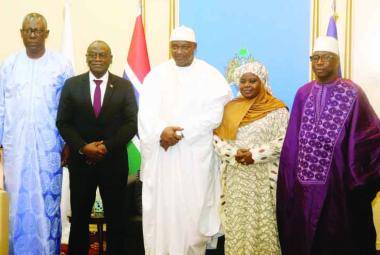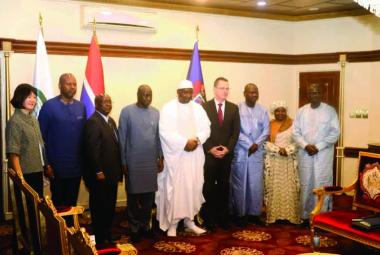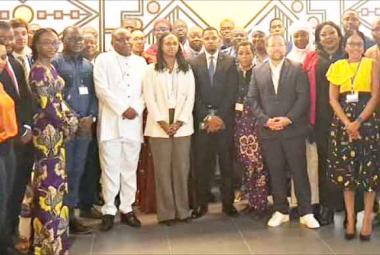By Zainab Jobarteh
In their bid to strengthen social protection, food safety, and gender equality, cabinet approved three policy papers during its meeting on Thursday, 25th July 2024 at the State House in Banjul, presided over by His Excellency President Adama Barrow.
Briefing journalists after the meeting, the Hon. Minister of Information, Dr. Ismaila Ceesay, announced the adoption of three papers presented by Vice President H.E. Muhammad BS Jallow; and the Hon. Minister of Gender, Children and Social Welfare, Fatou Kinteh.
Dr. Ceesay informed that the first paper, presented by Vice President Jallow, focused on the revised National Social Protection Policy 2015-2025, which aims to tackle The Gambia’s widespread poverty and multidimensional vulnerability. It addresses gaps in social protection provision and emphasises the need for modernisation and expansion to offer more reliable and effective protection against various shocks and stresses. The policy is designed to build resilience and reduce adversity and hardship among Gambians.
“The mid-term review of the policy in 2023 revealed significant progress in its implementation,” Dr. Ceesay stated. “However,’’ he continued,‘‘it also highlighted critical changes in the local social protection landscape and the need for new policy measures.”
The second paper, also presented by Vice President Jallow, pertains to the National Food Safety Policy 2023, which was also adopted by Cabinet. This policy outlines comprehensive measures to ensure the safety and quality of food and feed available in The Gambia, whether locally produced, imported, or exported. It underscores the importance of safeguarding the rights of all consumers, including those with special food safety needs such as children, allergic individuals, and immunocompromised patients.
“The policy seeks to ensure that all food and feed sold or made available in The Gambia are safe and suitable for consumption,” Dr. Ceesay emphasized.
Cabinet considered and adopted the National Gender Policy 2025-2034, presented by Hon. Minister Fatou Kinteh. This policy establishes a clear framework for the identification, implementation, and coordination of interventions aimed at achieving gender equality and women’s empowerment at both sectoral and national levels. It serves as a crucial guide for all stakeholders involved in the planning, resource allocation, implementation, monitoring, and evaluation of programs to ensure the effective mainstreaming of gender in all development initiatives.
“The National Gender Policy 2025-2034 is designed to ensure that gender equality and women’s empowerment are prioritized in all developmental efforts,” Dr. Ceesay noted.







